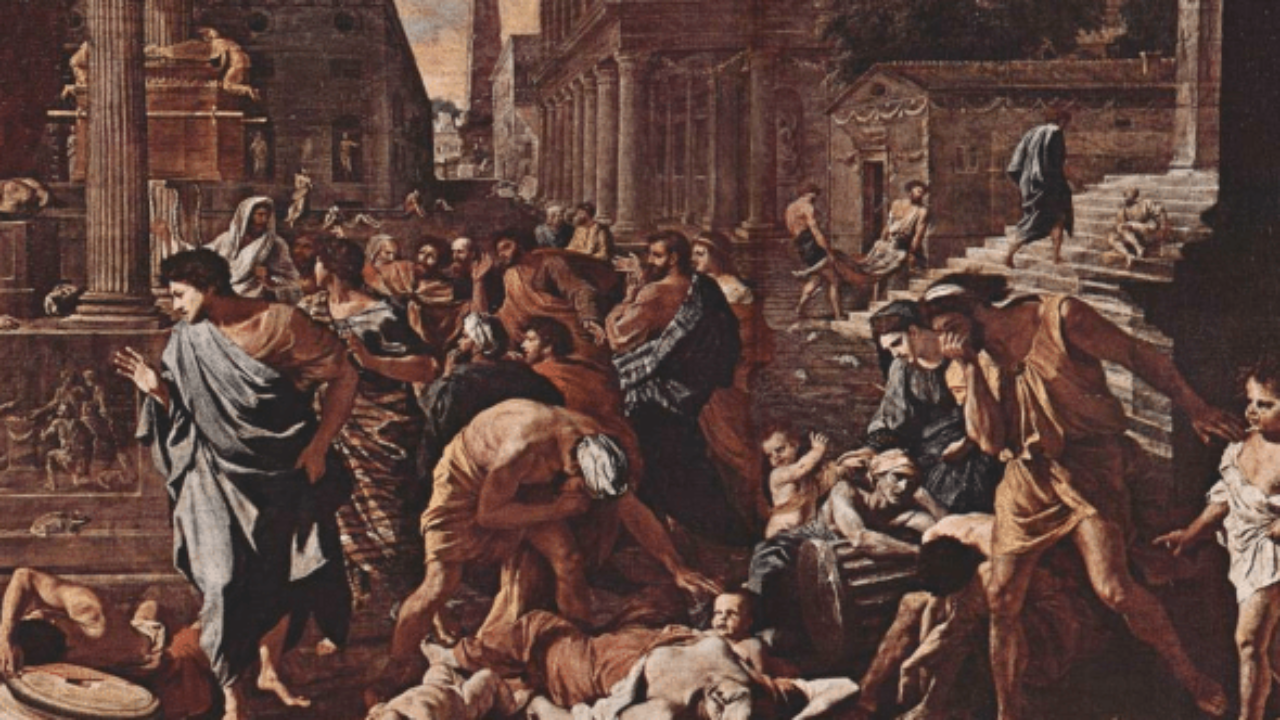Top 8 pandemics that shook the world questioning our ability to control the life.
Being human's, we always want and expect each day to be happy, beautiful and nurturing. Looking at the past few days while Viral disease is spreading rapidly like a fire, death tolls reaching the sky and the life of common man is completely upside down.
Living in the era of technology when we are unable to hold the pandemic situation like this with all the facilities, think how was the situation far before when all these telephones, medicines, hospitals were out of frame?
List of top 8 the global pandemics where the human expertise were questioned at every point.
Plague of Athens :
Plague of Athens pandemic outbreak was during the period of 430 to 426 BC. During the Peloponnesian War, typhoid fever killed a quarter of the Athenian troops and a quarter of the population. This disease fatally weakened the dominance of Athens, but the sheer virulence of the disease prevented its wider spread; i.e. it killed off its hosts at a rate faster than they could spread it. The exact cause of the plague was unknown for many years. In January 2006, researchers from the University of Athens analyzed teeth recovered from a mass grave underneath the city and confirmed the presence of bacteria responsible for typhoid.
Antonine Plague :
The Antonine Plague of 165 to 180 AD, also known as the Plague of Galen (after Galen, the physician who described it), was an ancient pandemic brought to the Roman Empire by troops who were returning from campaigns in the Near East. Scholars have suspected it to have been either smallpox or measles. Possibly measles or smallpox brought to the Italian peninsula by soldiers returning from the Near East, it killed a quarter of those infected, up to five million in total.
Plague of Cyprian :
Plague of Cyprian of 251–266 AD, a second outbreak of what may have been the same disease as the Antonine Plague killed (it was said) 5,000 people a day in Rome. The Plague of Cyprian was a pandemic that afflicted the Roman Empire about from AD 249 to 262. The plague is thought to have caused widespread manpower shortages for food production and the Roman army, severely weakening the empire during the Crisis of the Third Century. Its modern name commemorates St. Cyprian, bishop of Carthage, an early Christian writer who witnessed and described the plague. The agent of the plague is highly speculative because of sparse sourcing, but suspects have included smallpox, pandemic influenza and viral hemorrhagic fever (filoviruses) like the Ebola virus.
Plague of Justinian :
Plague of Justinian pandemic outbreak was during the period of 541 to 750 AD. The first recorded outbreak of bubonic plague started in Egypt and reached Constantinople the following spring, killing (according to the Byzantine chronicler Procopius) 10,000 a day at its height, and perhaps 40% of the city's inhabitants. The plague went on to eliminate a quarter to half the human population of the known world.It caused Europe's population to drop by around 50% between 550 AD and 700 AD.
Black death:
Black death outbreak was during 1331 to 1353.The total number of deaths worldwide is estimated at 75 to 200 million. Eight hundred years after the last outbreak, the plague returned to Europe. Starting in Asia, the disease reached the Mediterranean and western Europe in 1348 (possibly from Italian merchants fleeing fighting in Crimea), and killed an estimated 20 to 30 million Europeans in six years; a third of the total population, and up to a half in the worst-affected urban areas.It was the first of a cycle of European plague epidemics that continued until the 18th century. There were more than 100 plague epidemics in Europe during this period. The disease recurred in England every two to five years from 1361 to 1480.[62] By the 1370s, England's population was reduced by 50%. The Great Plague of London of 1665–66 was the last major outbreak of the plague in England and killed approximately 100,000 people, 20% of London's population.
Third plague pandemic :
Third plague pandemic outbreak was on 1855.The third plague pandemic was a major bubonic plague pandemic that began in Yunnan, China, in 1855 during the fifth year of the Xianfeng Emperor of the Qing dynasty.This episode of bubonic plague spread to all inhabited continents, and ultimately led to more than 12 million deaths in India and China, with about 10 million killed in India alone. Starting in China, it spread into India, where 10 million people died. During this pandemic, the United States saw its first outbreak: the San Francisco plague of 1900–1904. Today, sporadic cases of plague still occur in the western United States.
1918 Spanish flu :
The Spanish flu, also known as the 1918 flu pandemic, was an unusually deadly influenza pandemic caused by the H1N1 influenza A virus. Lasting from February 1918 to April 1920, it infected 500 million people–about a third of the world's population at the time–in four successive waves. The death toll is typically estimated to have been somewhere between 17 million and 50 million, making it one of the deadliest pandemics in human history.
COVID 19 :
Coronavirus disease 2019 (COVID-19) is an infectious disease caused by severe acute respiratory syndrome coronavirus 2 (SARS-CoV-2). It was first identified in December 2019 in Wuhan, Hubei, China, and has resulted in an ongoing pandemic. The first confirmed case has been traced back to 17 November 2019 in Hubei. As of 25 July 2020, more than 15.7 million cases have been reported across 188 countries and territories, resulting in more than 640,000 deaths. More than 9.13 million people have recovered. Covid-19 started in 2019 is still ongoing and leaving the world terrified with its death tolls.
We have travelled a long way down from the days of zero technology to space, from crises to plenty, from war to peace, from death to new life. I wondered how did they cope up from deadly pandemics with out any facilities, But now I know how. It was hope, love and care for one another which made everything possible. So, We will keep with this too.. This too shall pass.
Stay home and stay safe 🌝
Citations :
1. Ma, Josephine (13 March 2020). "Coronavirus: China's first confirmed Covid-19 case traced back to November 17". South China Morning Post. Archived from the original on 13 March 2020. Retrieved 28 May 2020.
2. ABC/Reuters (29 January 2008). "Black death 'discriminated' between victims (ABC News in Science)". Australian Broadcasting Corporation. Archived from the original on 20 December 2016. Retrieved 3 November 2008.
3. 1918 Pandemics (H1N1 virus). Centers for Disease Control and Prevention. Retrieved April 18, 2020.
4. A List of National Epidemics of Plague in England 1348–1665". Urbanrim.org.uk. 4 August 2010. Archived from the original on 8 May 2009. Retrieved 26 August 2010.
5. Bubonic plague hits San Francisco 1900–1909. A Science Odyssey. Public Broadcasting Service (PBS).
6. en.wikipedia.org/wiki/Pandemic

/https://public-media.si-cdn.com/filer/77/d1/77d1813a-5d11-4426-80fb-7fabab15d194/the_angel_of_death_striking_a_door_during_the_plague_of_rome_wellcome_v0010664.jpg)








0 comments
Please share your views on our blogs... Your opinion does matter.